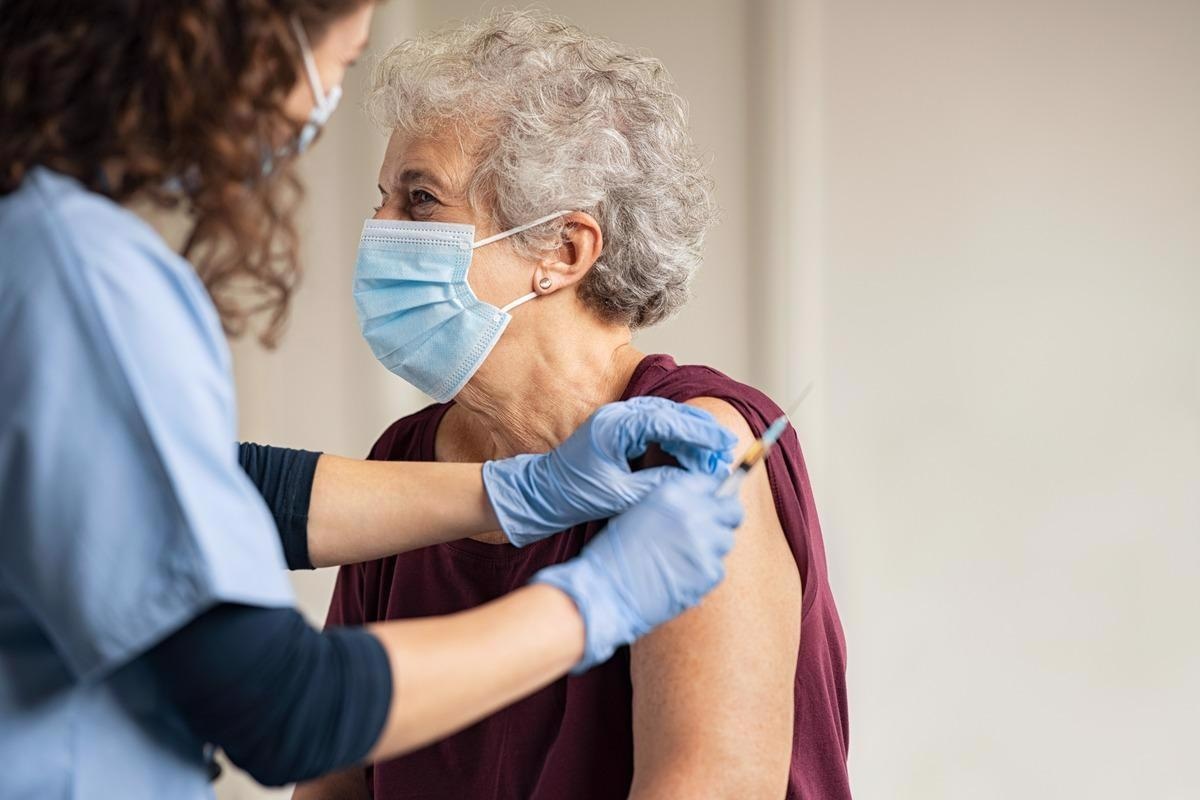In a recent investigation posted to the journal JAMA Internal Medicine,* researchers estimate the risk of a repeated allergic reaction to the second severe acute respiratory syndrome coronavirus 2 (SARS-CoV-2) messenger ribonucleic acid (mRNA) vaccine dose in those with a history of allergic responses following the first dose by conducting a systematic review and meta-analysis.

Study: Risk of Second Allergic Reaction to SARS-CoV-2 Vaccines A Systematic Review and Meta-analysis. Image Credit: Rido/Shutterstock
Coronavirus disease 2019 (COVID-19) vaccination is a very effective method for preventing SARS-CoV-2 infection and severe COVID-19 consequences such as intensive care unit (ICU) admission and mortality. Although rare allergic reactions were reported following the initial global SARS-CoV-2 vaccination campaigns on December 9, 2020, these incidences resulted in changes in vaccination policies stating that those who demonstrated acute allergic reactions to the first COVID-19 mRNA vaccine dose should not have any further doses of the SARS-CoV-2 mRNA vaccines.
Thus, the optimal vaccination technique for the second COVID-19 mRNA vaccine dose in these cohorts remains uncertain and is of prime importance to remove vaccination barriers to safeguard every individual against the SARS-CoV-2 pandemic.
About the study
In the current systematic review and meta-analysis, the scientists assessed the chances of severe immediate allergic reactions such as anaphylaxis to a second dose of COVID-19 mRNA vaccine among individuals who had acute allergic reactions to their initial mRNA vaccine dose.
The team examined the following databases: Embase, World Health Organization (WHO) Global CoV database, and MEDLINE, from inception until October 4, 2021. They included 22 studies consisting of case reports, case series, and single-group cohorts that addressed acute allergic reactions of any severity to a second COVID-19 mRNA vaccine dose in individuals with a suspected or known rapid allergic reaction within four hours of initial vaccination.
Paired reviewers independently screened, extracted, and assessed the studies, data, and risk of bias, respectively. The severity of the allergic reactions was determined by the reporting investigator using Ring and Messmer criteria, Brighton Collaboration criteria, National Institute of Allergy and Infectious Diseases (NIAID) criteria, or World Allergy Organization (WAO) criteria.
Meta-analysis was conducted using the random-effects models. Further, the certainty of the evidence was estimated using the grading of recommendation, assessment, development, and evaluation (GRADE) system.
Study findings
The results indicate that among the 1366 subjects from the 22 studies on second COVID-19 mRNA vaccine dose, about 88% were females and the mean age was 46 years. Of 1366 people who experienced an acute allergic reaction during the first COVID-19 mRNA vaccine dose, six demonstrated immediate severe allergic reaction while receiving the second dose under the care of an allergist, and the remaining 1360 tolerated the second dose, according to the pooled random-effects model analysis.
Of the six subjects experiencing an immediate allergic reaction, five recovered quickly following intramuscular epinephrine dosing. The remaining one patient with moderately severe anaphylaxis did not seek medical care and eventually recovered. Furthermore, mild acute non-severe allergic symptoms were seen in 232 recipients of the second SARS-CoV-2 mRNA vaccine dose.
Of the 78 individuals with an immediate severe allergic reaction such as anaphylaxis during the initial COVID-19 mRNA vaccine dose, four had the same while receiving the second dose of mRNA vaccination, and 15 demonstrated non-severe symptoms.
Further, no deaths were reported in these studies. Risk-stratification measures such as skin testing, premedication, and graded vaccination dose did not affect the main findings.
Conclusions
The study findings show a low incidence for severe acute allergic responses following the second dose of the SARS-CoV-2 mRNA vaccination in those who had an allergic reaction of any severity after the first dose with moderate-certainty evidence. Thus, those with a history of an allergic reaction associated with the first dose of COVID-19 mRNA vaccination demonstrated low chances of repeated immediate anaphylactic or immediate allergic reactions following the second dose. Nevertheless, one in seven recipients of the second SARS-CoV-2 mRNA vaccine dose experienced mild allergic symptoms.
The current findings challenge the widely held belief that a past allergic response to the SARS-CoV-2 mRNA vaccine, especially severe acute allergic reactions, predicts a similar allergic reaction following the revaccination. In addition, it indicates that COVID-19 mRNA vaccine-triggered severe allergic reactions probably do not occur through the immunoglobulin E (IgE)-dependent processes. This inference was based on 1) the absence of any verifiable and consistent specific allergen within COVID-19 mRNA vaccines, 2) the ineptitude of skin testing of the components of vaccine to forecast acute allergic reaction to the vaccination, and 3) low baseline frequency of severe acute allergic responses to the vaccines.
Although further studies are needed, the present investigation reinforces the safety of revaccination of those who had an allergic reaction to the initial COVID-19 mRNA vaccine dose in a clinical setting provisioned to handle severe allergic reactions, if any occurs. Further, consulting an allergist is recommended for individuals with a history of allergic reactions following the SARS-CoV-2 mRNA vaccination before planning the second dose vaccination.
- Chu DK, Abrams EM, Golden DBK, et al. Risk of Second Allergic Reaction to SARS-CoV-2 Vaccines: A Systematic Review and Meta-analysis. JAMA Intern Med. Published online February 21, 2022. doi:10.1001/jamainternmed.2021.8515, https://jamanetwork.com/journals/jamainternalmedicine/fullarticle/2788991
Posted in: Child Health News | Men's Health News | Medical Research News | Women's Health News | Disease/Infection News
Tags: Allergen, Allergy, Anaphylaxis, Coronavirus, Coronavirus Disease COVID-19, covid-19, Epinephrine, Frequency, Immunoglobulin, Infectious Diseases, Intensive Care, Medicine, Mortality, Pandemic, Respiratory, Ribonucleic Acid, SARS, SARS-CoV-2, Severe Acute Respiratory, Severe Acute Respiratory Syndrome, Skin, Syndrome, Vaccine

Written by
Shanet Susan Alex
Shanet Susan Alex, a medical writer, based in Kerala, India, is a Doctor of Pharmacy graduate from Kerala University of Health Sciences. Her academic background is in clinical pharmacy and research, and she is passionate about medical writing. Shanet has published papers in the International Journal of Medical Science and Current Research (IJMSCR), the International Journal of Pharmacy (IJP), and the International Journal of Medical Science and Applied Research (IJMSAR). Apart from work, she enjoys listening to music and watching movies.
Source: Read Full Article
